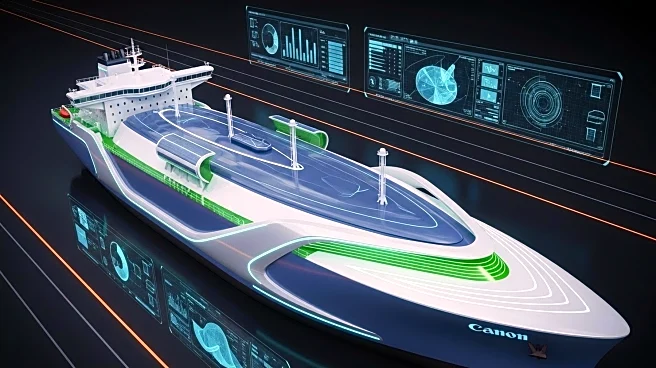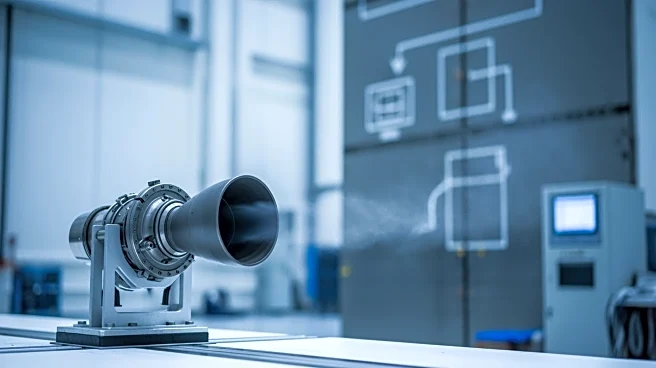What is the story about?
What's Happening?
DNV and HD Hyundai Heavy Industries (HD HHI) have entered into a memorandum of understanding (MoU) to jointly develop and verify a new design for a 200,000 cubic meter liquefied natural gas (LNG) carrier. This collaboration aims to improve the operational efficiency and terminal compatibility of LNG carriers. DNV will focus on design verification to ensure the new vessel design meets these goals. The partnership highlights a commitment to advancing ship design to better meet customer needs, including enhanced terminal compatibility. Hongryeul Ryu, CTO of HD HHI, emphasized the importance of this collaboration in enhancing vessel performance and operational flexibility. Vidar Dolonen, Regional Manager for Korea & Japan at DNV, noted that the partnership underscores DNV's dedication to supporting innovation in LNG shipping, aiming for safer, more efficient, and sustainable LNG transportation.
Why It's Important?
The collaboration between DNV and HD HHI is significant as it addresses the growing demand for more efficient and environmentally friendly LNG carriers. As global energy markets shift towards cleaner energy sources, the development of optimized LNG carriers is crucial for reducing emissions and improving fuel efficiency. This partnership could set new standards in the shipping industry, potentially influencing future vessel designs and operational practices. Stakeholders in the LNG market, including shipping companies and terminal operators, stand to benefit from improved compatibility and efficiency, which could lead to cost savings and reduced environmental impact. The initiative also reflects broader industry trends towards sustainability and innovation in maritime transport.
What's Next?
The next steps involve the detailed design verification process by DNV, which will assess the new LNG carrier design's efficiency and compatibility with various terminals. Successful verification could lead to the adoption of this design in future LNG carrier constructions, potentially influencing industry standards. The collaboration may also prompt other shipbuilders and classification societies to pursue similar innovations, further advancing the industry's shift towards sustainable practices. Stakeholders will likely monitor the outcomes of this partnership closely, as it could impact future investments and regulatory developments in the LNG shipping sector.
















